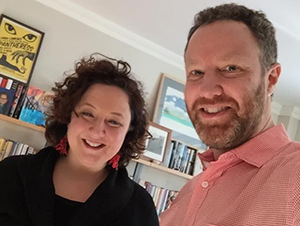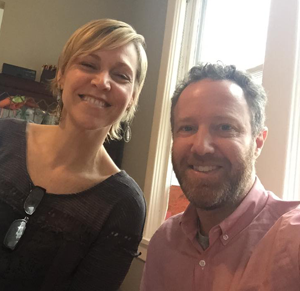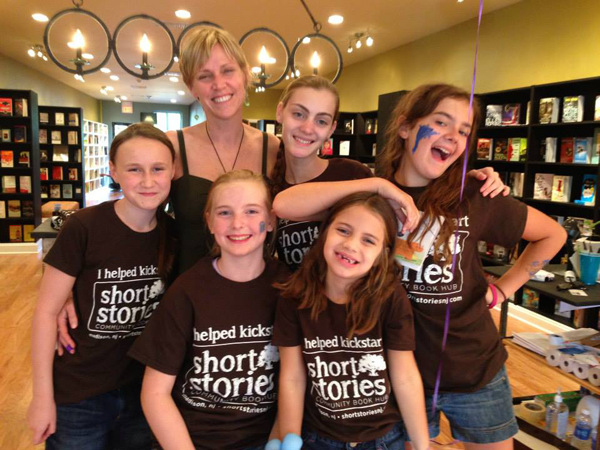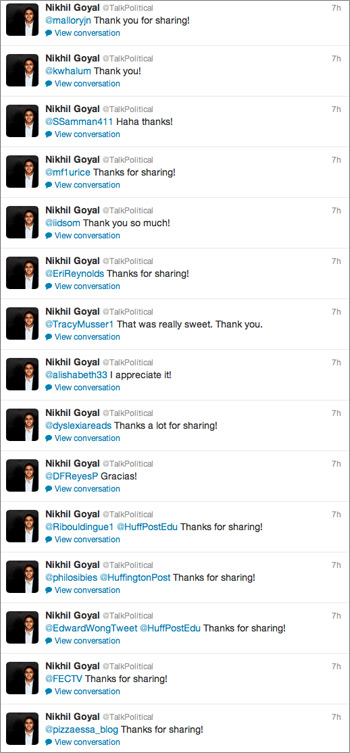What Julia Fierro has accomplished is astounding. She is the author of Cutting Teeth and the forthcoming The Gypsy Moth Summer, she runs the Sackett Street Writers’ Workshop which has had more than 2,500 writers pass through it in more than 12 years, she is a teacher, has been published in many prominent magazines and media outlets, and is a wife and mother of two. What makes her accomplishments so much more intriguing is how open she has been about her struggles with anxiety and OCD. She described it this way in Poets & Writers magazine:
“The Obsessive-Compulsive Disorder I’d struggled with since childhood, pushed me into a cycle of episodes, both depressed and obsessive, that would make it difficult for me to leave the house, socialize, write, and even read for years.”

- How she started The Sackett Street Writers’ Workshop, beginning with a simple personal goal.
- How (and why) she runs the organization without an administrative assistant.
- How her obsessive compulsive issues and anxiety have at times hindered her creative work, and at times helped it.
- Why she couldn’t write for years and years as she taught other writers, and how she was eventually able to write and publish her novel Cutting Teeth.
- Her own unique “balance” of teaching, writing, running the workshop, and raising two kids.
- How she loves and embraces social media, but puts firm boundaries on it to ensure it doesn’t become debilitating.
Click ‘play’ above to listen to the podcast, or subscribe on iTunes, or download the MP3.
This podcast is part of the research for a book I am writing called Dabblers vs. Doers, which is about working through RISK as you develop your craft and build a meaningful body of work.
Here are some key insights that Julia shared with me…
STARTING & RUNNING THE SACKETT STREET WRITERS’ WORKSHOP
“I am not your typical business-woman. My clear intention was not to start a business. I put an ad on Craigslist in 2002 because I was lonely, and I wanted to have a workshop in my home. I had this big disappointment in my first novel being rejected by editors. I was just feeling so broken and lacking in confidence. I needed to remove myself from the literary scene in New York, because I wasn’t feeling good about myself. I think there are times you have to remove yourself from the intensity of the world of your work, so you can find yourself again and become more centered. So I put this ad on Craigslist for writers of all levels, I didn’t screen them, I had no idea who was showing up to my house, and it was just so comforting to be working with a tiny community. Then it grew and grew, I was teaching four nights a week in my home, and people started calling me a “school.” I realized legally that I had to incorporate.”
“I’m the only administrator, because I can’t afford to hire an assistant because life in New York is so expensive. And also because I am a micromanager. I really feel like I am the person who will answer emails with a personal stake in the exchange. I do get 50-80 emails a day. I do get behind on email now. To write the next book, I have to LET myself get behind. I can’t just answer emails as soon as thy come in, which I feel like a lot of people expect you to do.”
HOW SHE MANAGES IT ALL
“It’s really unhealthy. Because of my lifelong obsessive compulsive issues, I have been able to cope with well these last couple of years because of Zoloft, which I’m starting to be more open about. I need to be busy. I find I’m happiest when I’m like a workaholic. This busy age that we live in is great for an obsessive person.”
“It’s hard for me to run the business, and write, and teach.”
“I still can’t believe I have accomplished even a tiny bit of what I have. I have such debilitating anxiety for so many years. Even when I was first starting Sackett Street, and all those years of teaching, students would be like, ‘you are changing my life,’ and I just couldn’t congratulate myself. I really just felt like a failure because of the OCD, anxiety and depression. Plus, I had two children during that period, it was very hard to get by financially in New York. I had to keep teaching, teaching, teaching with the small babies and my husband would lose a job, start a job, we were in an economic depression — it was hard. When it comes down to it, for me, when my second child was born, I had terrible anxiety. After she was born, my OB practically begged me to try Zoloft. And for me, that changed my life. Obviously, I’m not pushing drugs on people, but for me, it alleviated a lot of the anxiety which allowed me to focus.”
“Learning to feel good about myself that wasn’t based on external praise. I could see that I was working hard, and that affect was visible through Sackett Street.”
“Becoming a healthier person – being able to afford babysitting after not having help for so many years – that was huge. After my daughter was born, I finally could afford my babysitting hours, which was doubled to 20 hours per week, which was ridiculous and not even much time – but that’s how I started writing again.”
“My husband works until 7:30 every night, and that was when class started. He would come home just in time to grab my son and bring him to the back room, so I could teach class [in the living room.]”
EMBRACING THE DIFFERENT PHASES OF YOUR CREATIVE LIFE
“My story is really one about ‘failure,’ creating an amazing reward in the end. I think it is really about, whether you are a writer or different kind of creative person, figuring out what you need in the different phases of your life. As a young writer, I thought my style, my process, my attitude, my focus, would be the same for the rest of my life, it was so ignorant. It wasn’t until I went through all those years and came out the other end, into a completely different phase, with a new process – where I wrote much faster, much more efficiently, in a completely different style that was much more like my voice, that I realized that you have many different phases in your creative life, and sometimes those phases involve being patient with yourself.”
Thank you to Julia for making the time to meet with me and share her wisdom. You can find her in the following places:
- JuliaFierro.com
- Twitter @JuliaFierro
- Instagram @JulieFierro
- The Sackett Street Writers’ Workshop
- Her novel Cutting Teeth
There are also several other amazing articles on Julia to check out:
- A Writer’s Comeback: How I Built My Own Literary Scene and Saved Myself
- Social media saved me from my fears: How Facebook brought me back into the real world
- The Parenting Fear I Couldn’t Escape — And Still Apologize For
- The Rumpus Interview with Julia Fierro
For more interviews and behind-the-scenes stuff on my book Dabblers vs. Doers, click here.
Thank you!
-Dan
Podcast: Play in new window | Download
Subscribe: RSS



 What can a 17 year old teach us about building an author platform? A LOT! Today I want to profile Nikhil Goyal, a 17 year old high school student who will be releasing his book on education reform this September:
What can a 17 year old teach us about building an author platform? A LOT! Today I want to profile Nikhil Goyal, a 17 year old high school student who will be releasing his book on education reform this September:  Oh, also this… to the right is a screenshot of his Twitter feed from last night, where he takes the time to thank individual people who shared an article that featured him.
Oh, also this… to the right is a screenshot of his Twitter feed from last night, where he takes the time to thank individual people who shared an article that featured him.